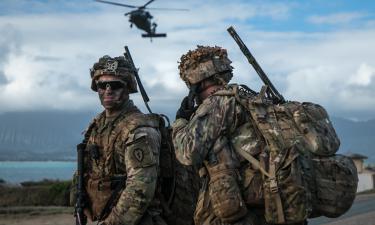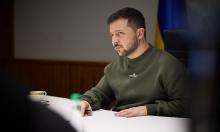Council of Europe Secretary General: no double standards against Russia
The fact that British legislator Terry Davis has been elected Secretary General of the Council of Europe is apparently good news for Russia. The new Secretary General who will be officially sworn in on September 1 says there is a need to reform the Council of Europe and put an end to double standards against Russia. Right after his election in Strasbourg Terry Davis gave an interview to popular Russian newspaper Izvestia.
Mr. Davis said that the Council of Europe needed reform, first of all, to abandon double standards. Politicians from Russia and other countries that joined the Council of Europe not as long ago as others are right when they say that all states involved have to abide by all the commitments the membership implies. In fact, monitoring commissions of the Parliamentary Assembly of the Council of Europe (PACE) seem to be turning a blind eye on the countries with a long membership record.
Mr. Davis promised to do all his best to provide equality and unbiased treatment to all member states, whatever their size and economic environment.
The new Secretary General expressed his commitment to make the Council of Europe concentrate on fighting human traffic and terrorism. He condemned exploiting terrorism to hit political targets. There must be detailed evaluation of what CoE can do to that effect, he said.
Save human traffic and terrorism, he went on, CoE should address humanitarian issues - sexual equality, and problems of refugees and displaced persons. There is a need for a huge campaign against racism, anti-Semitism, and Islamophobia - all these phenomena are not in line with CoE's primary goal of protecting human rights, Davis said.
He emphasized war on terror as a key issue on the international agenda and said that terrorism is an urgent problem not only for Russia, but also for the United Kingdom. We all fight against evil, but it is ultimately important not to go beyond the law, he added.The British society is divided over how to combine human rights and war on terror. This is a problem, he said, and a great challenge will be to come to a common view of the problem within the Council of Europe.
As to the Chechen problem, the Council of Europe's Secretary General said that certain progress on the issue had been made. Of course everyone wants settlement to go on faster, but it would be unfair and totally wrong to take no notice of positive results that are already there, he said. According to the official, in a settlement process there will always be some people who are not satisfied, which Great Britain saw on the example of the Northern Ireland and Russia has recently seen on the example of Ingushetia.
Mr. Davis said that he condemned terrorists in both countries and emphasized that fighting terrorism is part and parcel of human rights protection.
As to the problem of the Russian minority in the Baltic states, Terry Davis said that, though some of these people had moved to the Baltic on their own accord, there were some who had to do so for various reasons. Many of these people who live, for example, in Latvia, have fought in the war that Russia calls the Great Patriotic War. Russians have made an enormous contribution to fight against the Nazis. These elderly people who live in Latvia today deserve respect, and no one can be treated as kind of a "B-class citizen," Davis emphasized.
In conclusion Mr. Davis said he was sure that the Council of Europe would have good working relations with Russia. To make a dialog constructive, both sides should take appropriate efforts, he noted. He said he had always dealt well with Russians not only politically, but also personally.
In Parliament, Mr. Davis is a member of the Friends of Russia group. He has made several trips to Russia.
He remembered in the interview that after one of such trips his wife and himself opted to stay privately in Moscow and St. Petersburg for a couple of days, and only then did he realize how kind-hearted and sincere Russians are.
Subscribe to Pravda.Ru Telegram channel, Facebook, RSS!





